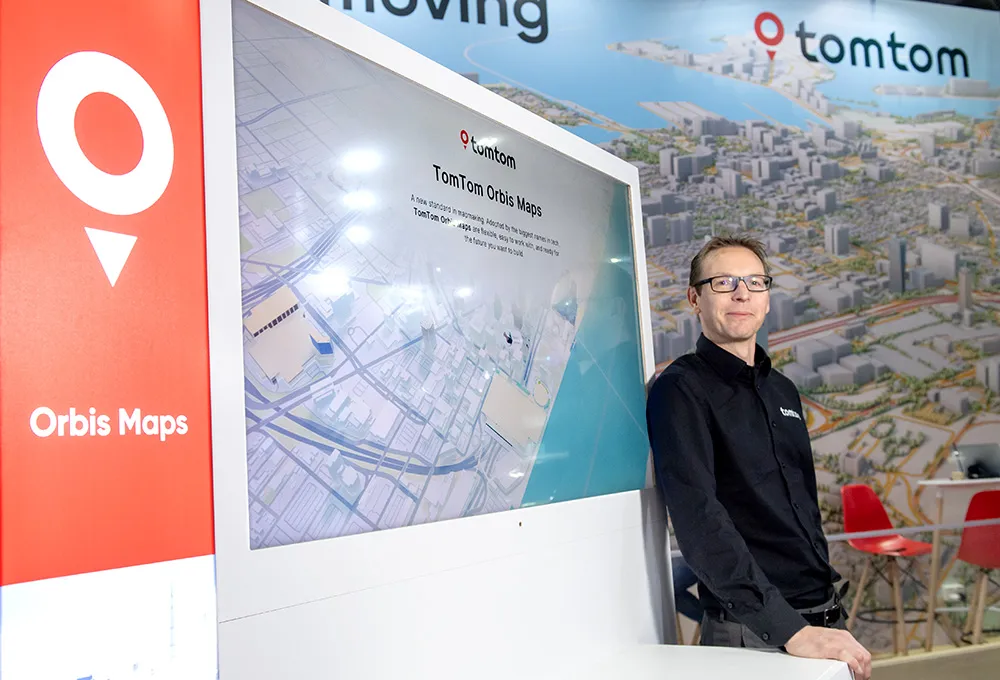Traffic congestion in cities across the UK has got significantly worse over the past year, according to a new report from TomTom. The fourth annual Traffic Index from TomTom shows average journeys in 2013 took 27 per cent longer than they would in free-flowing traffic – up from a 26 per cent delay in 2012.
June 4, 2014
Read time: 2 mins
Traffic congestion in cities across the UK has got significantly worse over the past year, according to a new report from 1692 TomTom.
The fourth annual Traffic Index from TomTom shows average journeys in 2013 took 27 per cent longer than they would in free-flowing traffic – up from a 26 per cent delay in 2012.
Traffic jams in ten out of Britain’s 17 biggest cities, London, Brighton, Sheffield, Nottingham, Leicester, Birmingham, Portsmouth, Cardiff, Belfast and Southampton, have become worse over the past 12 months. Congestion levels have also failed to improve in Edinburgh, Manchester, Liverpool, Newcastle and Glasgow, although congestion has reduced in Leeds-Bradford and Bristol.
The report also suggests that drivers using rat runs or short cuts may actually be making their journeys slower. The data shows that local roads have twice as much lost travel time (32 per cent) as main roads (15 per cent).
TomTom analysed over ten trillion pieces of data worldwide to compile its traffic index, which showed that Moscow remains the most congested city globally with congestion at 74 per cent, rising to road rage levels of 141 per cent in the evening peak. Istanbul (62 per cent) is in second place, followed by Rio de Janeiro (55 per cent) – and that’s before the World Cup invasion!
“Traffic congestion is nothing new, and continues to be a global challenge,” commented Harold Goddijn, CEO of TomTom. “The traditional responses to congestion - such as building new roads or widening existing ones - are no longer proving to be effective.
“Real time traffic information can help drivers find the quickest shortcut on their journey, and assist governments to make smarter decisions to improve traffic flow for their cities,” he said.
It is estimated that time lost as a result of traffic congestion costs the UK economy US$3.3 billion a year and the situation is set to get worse despite a US$47 billion plan for road improvements in the UK. The Government has forecast four million more drivers on UK roads by 2030 and that, by 2040, the volume of traffic will have risen by 40 per cent.
The fourth annual Traffic Index from TomTom shows average journeys in 2013 took 27 per cent longer than they would in free-flowing traffic – up from a 26 per cent delay in 2012.
Traffic jams in ten out of Britain’s 17 biggest cities, London, Brighton, Sheffield, Nottingham, Leicester, Birmingham, Portsmouth, Cardiff, Belfast and Southampton, have become worse over the past 12 months. Congestion levels have also failed to improve in Edinburgh, Manchester, Liverpool, Newcastle and Glasgow, although congestion has reduced in Leeds-Bradford and Bristol.
The report also suggests that drivers using rat runs or short cuts may actually be making their journeys slower. The data shows that local roads have twice as much lost travel time (32 per cent) as main roads (15 per cent).
TomTom analysed over ten trillion pieces of data worldwide to compile its traffic index, which showed that Moscow remains the most congested city globally with congestion at 74 per cent, rising to road rage levels of 141 per cent in the evening peak. Istanbul (62 per cent) is in second place, followed by Rio de Janeiro (55 per cent) – and that’s before the World Cup invasion!
“Traffic congestion is nothing new, and continues to be a global challenge,” commented Harold Goddijn, CEO of TomTom. “The traditional responses to congestion - such as building new roads or widening existing ones - are no longer proving to be effective.
“Real time traffic information can help drivers find the quickest shortcut on their journey, and assist governments to make smarter decisions to improve traffic flow for their cities,” he said.
It is estimated that time lost as a result of traffic congestion costs the UK economy US$3.3 billion a year and the situation is set to get worse despite a US$47 billion plan for road improvements in the UK. The Government has forecast four million more drivers on UK roads by 2030 and that, by 2040, the volume of traffic will have risen by 40 per cent.








